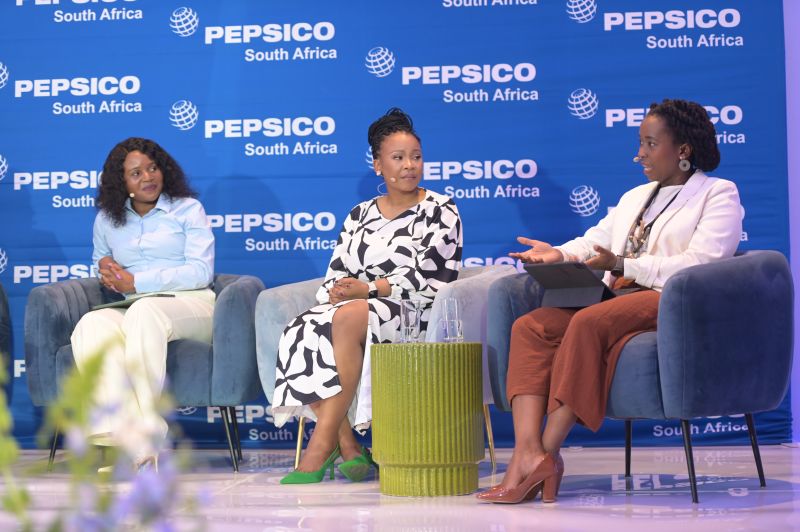Introduction
PepsiCo South Africa recently hosted a LinkedIn Live event titled “The Business of Being a Woman in Farming,” aimed at driving meaningful change within the agricultural industry by highlighting the pivotal role of women. The event brought together industry leaders and experts to discuss the impact of women-led agriculture and the steps needed to empower female farmers in South Africa.
The Global Impact of Women in Agriculture
Anthony Viljoen, Director of Agronomy at PepsiCo South Africa, opened the discussion by emphasizing the significant global impact of women-led agriculture. He cited studies indicating that if agriculture were predominantly led by women, productivity could increase by 20% to 30%. Viljoen highlighted PepsiCo’s commitment to empowering local female farmers by enhancing their productivity and driving advancements in agronomy that benefit both their businesses and the broader agricultural community. “Our role is to empower local female farmers by enhancing their productivity and driving advancements in agronomy that benefit both their businesses and the broader agricultural community,” Viljoen stated.
From Smallholder Production to Commercial Success
MEC Ramokgopa expressed optimism about the rising influence of women in agriculture, noting that women now make up a third of the agricultural labor force and a significant share of smallholder production. However, she emphasized the need to transform this substantial contribution into commercial success. “It’s inspiring to see women leading the sector, with women comprising a third of the agricultural labor force, and a significant share of smallholder production. Our challenge now lies in turning this substantial contribution in smallholder production into commercial success and to ensure that South Africa’s women are adequately compensated and valued across the supply chain,” she remarked.
Ramokgopa also highlighted the Department's ongoing programs, in partnership with various stakeholders, aimed at increasing productivity and resilience for women in farming. She called for more active collaboration with financial services, agribusinesses, and local government to further boost access to training and capacity-building for women in agriculture.
Insights from Industry Leaders: The Resilience and Contributions of Women in Agriculture
Tshego Selepe, Head of Agribusiness at Kgodiso Development Fund (KDF), shared key insights from her work with farmers, highlighting the remarkable resilience and capability of women in agriculture. “Women have shown remarkable resilience and capability in sustaining agricultural activities, ensuring food security, and driving economic growth, even in the face of numerous challenges. Their determination and strength are evident in their consistent contributions to agricultural productivity and the nation’s economic development,” Selepe noted.
Selepe emphasized the vital role women play in sustaining agricultural activities, ensuring food security, and driving economic growth, even in the face of numerous challenges. Her insights underscored the importance of continued support and investment in women-led agricultural initiatives to drive economic development and resilience in the sector.
Bridging the Market Gap: The Role of Technology in Empowering Rural Female Farmers
Ayanda Mbonani-Vana, Chief Operating Officer at Khula!, an agri-tech digital ecosystem, discussed the critical role of innovative digital and technology solutions in bridging the market gap for rural female farmers. She explained how technology is creating new opportunities by providing real-time market information, connecting farmers to buyers, and offering transportation solutions. “Agriculture has been one of the key drivers in innovation and technology since the stone age. Take for example the grinding stone, which later evolved into the complex machinery we see today. The notion that farmers are struggling with innovation is far-fetched, when technology was, and will always remain logic-based solutions driven by the needs of the sector,” Mbonani-Vana explained.
Mbonani-Vana’s remarks highlighted how technology is revolutionizing agriculture, particularly for women in rural areas, by offering them the tools and resources needed to thrive in a competitive market.
Driving Change in Agriculture: A Collaborative Effort
The event underscored the importance of collaboration among various stakeholders—financial institutions, agribusinesses, local governments, and technology providers—to empower women in agriculture. By providing the necessary tools, resources, and support, these collaborations can help female farmers overcome the challenges they face, scale their operations, and contribute more significantly to the economy.
PepsiCo South Africa’s “The Business of Being a Woman in Farming” event was a powerful platform for advocating for the empowerment of women in agriculture. By recognizing the critical role of women in the industry and highlighting the steps needed to support their growth, the event set the stage for meaningful change in South Africa’s agricultural landscape.




